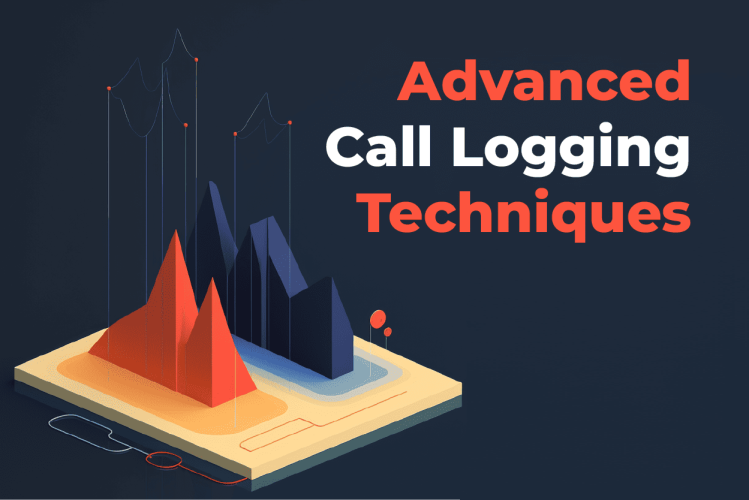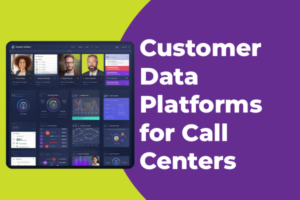Advanced call logging is a vital tool for businesses to enhance communication management and operational efficiency. By automating the collection and organization of call details, businesses can gain valuable insights into their communication activities, improve customer interactions, and drive informed decision-making. This comprehensive guide explores the nuances of advanced call logging and how it can revolutionize your business operations.
Understanding Call Logs
Call logging is a critical component of modern business phone systems, especially those that operate on Voice-Over-Internet-Protocol (VoIP) technology. It involves the systematic collection, recording, and organization of detailed information about incoming and outgoing calls. This essential tool automates the process, ensuring accuracy and efficiency in call management.
If you would like to learn more about the benefits of a VOIP solution, we highly recommend another one of our articles called “Cost Savings of VOIP: A Comprehensive Analysis“. Discover how VOIP is revolutionizing call centers by reducing long-distance charges, minimizing hardware investment, and ensuring predictable monthly expenses.
With call logging, businesses can precisely track the date and time of each call, allowing for better scheduling and resource allocation. The ability to differentiate between incoming and outgoing calls with unique identifiers enables businesses to gain a deeper understanding of their call volumes and patterns.
Collecting customer information is another crucial aspect of call logging. Call logs capture customer numbers and contact details, enabling businesses to maintain a comprehensive database of customer interactions. This information can be used for various purposes, such as customer relationship management (CRM), lead identification, and targeted marketing campaigns.
If you want to learn more about effective customer information management, and how to choose a platform that suits your exact needs, here’s another article that might interest you: ‘How to Evaluate Call Center Software Vendors for Customer Data Platform Solutions.’ Uncover the secrets to optimizing call center efficiency, enhancing customer experiences, and making informed decisions for your business. Don’t miss out on the transformative insights!
For businesses that utilize call recording features, call logs provide a convenient way to access and link recorded calls for further analysis. Call recordings can be invaluable for quality assurance purposes, dispute resolution, and training purposes. With call logging, businesses can easily retrieve and review relevant recordings, saving time and effort.
Here’s an example of what call logs look like inside the NobelBiz OMNI+ platform:
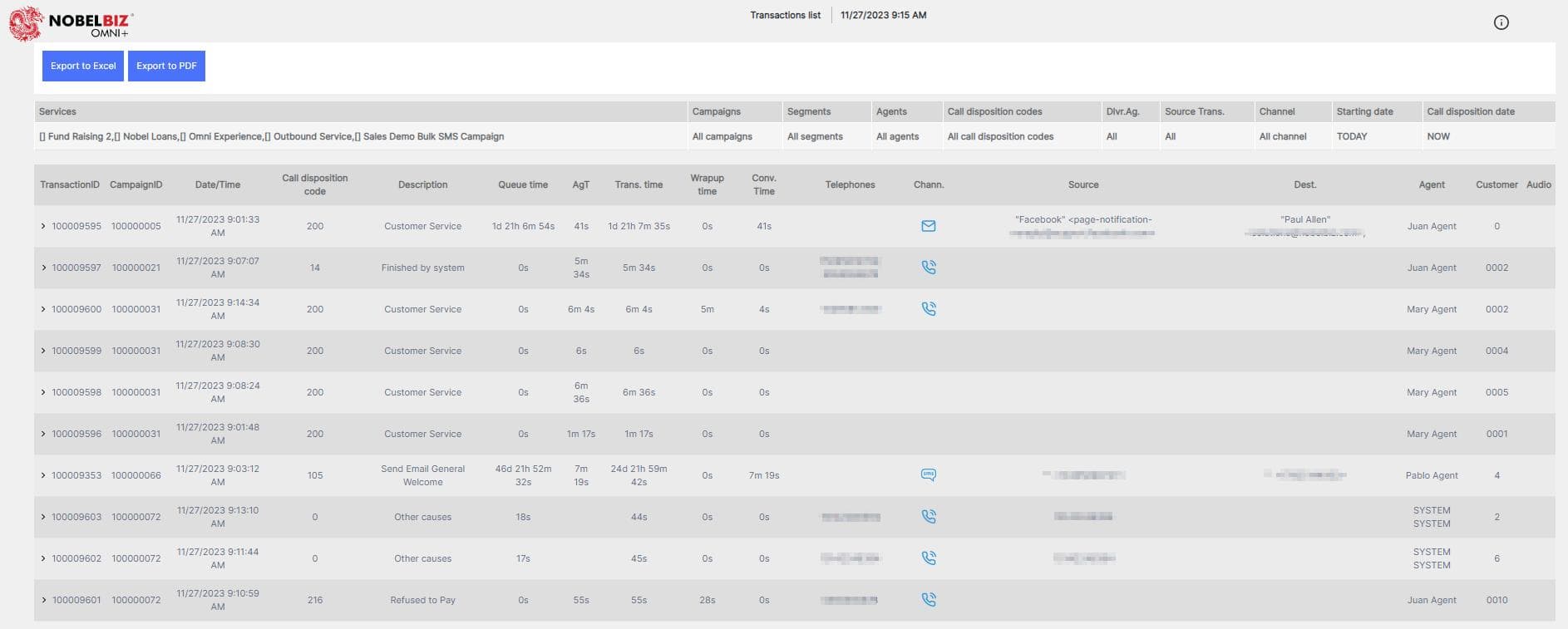
Key Data Tracked in Call Logs
Call logs are a goldmine of critical information, offering businesses a rich repository of data that delivers a comprehensive snapshot of communication activities. From call duration to frequency, these logs empower businesses with insights to enhance customer interactions, refine strategies, and drive informed decision-making. Here are the key data points captured in call logs:
- Call Date and Time: Precise tracking of when calls occur allows businesses to analyze call patterns and identify peak call times. This information is essential for effective resource allocation and scheduling.
- Call Type and ID: Call logs differentiate between incoming and outgoing calls with unique identifiers, enabling businesses to gain insights into the nature of their communication activities. By categorizing calls based on their type, businesses can analyze call volumes and identify trends.
- Call Duration: Accurate measurement of call lengths helps businesses analyze average call durations and identify any outliers. This information is crucial for optimizing call handling processes, improving customer service, and identifying training needs for agents.
- Customer Information: Call logs capture customer numbers and contact details, allowing businesses to maintain a comprehensive database of customer interactions. This information is invaluable for customer relationship management (CRM), lead identification, and targeted marketing campaigns.
- Call Handler Details: Call logs record the details of the call handler, enabling businesses to identify the personnel responsible for handling specific calls. This information facilitates performance analysis, accountability, and targeted training and coaching for agents.
- Call Recordings (if applicable): For businesses that utilize call recording software, call logs provide a convenient way to access and link recorded calls for further analysis. Call recordings can be invaluable for quality assurance purposes, dispute resolution, and training purposes. With call logging, businesses can easily retrieve and review relevant recordings, saving time and effort.
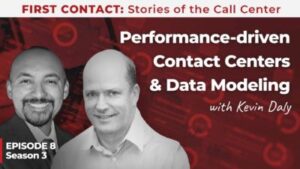
If you want to learn more about call center data modeling, join us in this insightful podcast episode with Kevin Daly, founder of Value Ad and creator of Bestpair. Delve into the intricacies of leveraging client, product, and agent data for enhanced performance, combating agent attrition, and unlocking the full potential of data-driven strategies.
Advantages of Automatic over Manual Logging
Automatic call logging is a more efficient and accurate way of tracking call center performance compared to manual call logging. First, call logging involves human agents listening to call recordings and manually entering data into a spreadsheet or database. This process is time-consuming and prone to errors, as agents may miss important details or enter incorrect information.
On the other hand, automatic call logging uses software to automatically capture and record call data, such as call duration, caller ID, and call outcome. This data is then stored in a centralized database, where it can be easily accessed and analyzed by call center managers.
Opting for automated call logging presents numerous advantages over traditional manual methods:
- Error Reduction: Automated systems minimize human error in recording call details. With manual logging, there is always a risk of inaccuracies or missing information due to human error. However, with automated call logging, businesses can rely on technology to accurately capture and record all necessary call details. This eliminates the potential for human error and ensures that the data collected is reliable and accurate.
- Standardization: Uniform call log formats facilitate easier analysis and comparison. When call logging is done manually, there is a lack of standardization in how the information is recorded. However, with automated call logging, businesses can establish a standardized format for recording call details.
- Efficiency: Time saved in manual recording can be reallocated to more productive tasks. Manual call logging can be a time-consuming process, requiring individuals to manually input call details into a log. This takes away valuable time that could be spent on more important and productive tasks. With automated call logging, the process is streamlined and efficient. Call details are automatically captured and recorded, saving time and allowing employees to focus on other tasks that contribute to business growth and success.
Automatic logging streamlines the process, ensuring accuracy and freeing up valuable time for call center agents. In the fast-paced world of customer service, efficiency is the key, and automatic logging opens the door to a smoother and more productive workflow. – Christian Montes, Executive Vice President of Client Operations @NobelBiz
Exploring Call Logging Software
Optimizing communication management in your call center hinges on selecting the right call-logging software. This crucial choice streamlines operations, guaranteeing accurate data logging while liberating agents to prioritize customer interactions. It’s a strategic investment that resonates with efficiency, elevating overall performance, and fostering heightened customer satisfaction.
- Enhanced Call Categorization: Modern call logging software allows businesses to categorize calls based on specific criteria, such as sales inquiries, customer complaints, or general inquiries. This provides deeper insights into communication activities and identifies trends or patterns.
- Search and Sort Capabilities: Efficient filtering and sorting of call logs are essential for quick and easy access to relevant information. Call logging software should provide robust search and sort capabilities, allowing users to quickly locate specific calls based on various parameters, such as date, time, caller ID, or call type. This functionality saves time and effort, enabling businesses to retrieve and review call logs efficiently.
- Integrated Call Center Analytics: Call logging software with built-in call center analytics tools provides valuable insights into call patterns and trends. These tools analyze call data and generate reports or visualizations that highlight key metrics, such as call volumes, peak call times, or average call duration. By leveraging these analytics features, businesses can make data-driven decisions, optimize resource allocation, and enhance operational efficiency.
- Agent Performance Metrics: Call logging software should provide metrics to measure agent efficiency, such as call duration, resolution rate, and customer satisfaction. This helps identify high-performing agents, and areas for improvement, and enables targeted training or coaching to enhance overall performance.
- CRM Integrations: Call logging software should seamlessly synchronize with CRM platforms, enabling businesses to access customer information directly from the call logs. This facilitates effective customer relationship management, lead identification, and targeted marketing campaigns.
NobelBiz OMNI+ cloud contact center software features advanced call logging capabilities alongside its full-featured solution, tailored to adapt effortlessly to clients’ needs and industry trends. This complete omnichannel contact center solution integrates seamlessly with various communication channels, offering rapid API integrations, simplified cross-channel campaign setup, and support for remote work. With a customizable interface, supervisor dashboard, and genuine omnichannel capabilities, NobelBiz OMNI+ is a cutting-edge solution consolidating essential functions for modern contact centers.
Benefits of Call Logging Software
Implementing call logging software brings significant benefits, providing businesses with enhanced performance monitoring, lead identification, and the ability to make data-driven decisions.
Within the contact center landscape, call logging software serves as the linchpin of operational excellence. It not only chronicles interactions but acts as a strategic compass, guiding businesses towards informed decisions, improved customer engagements, and a streamlined path to heightened efficiency and success. – Brad Butler, Contact Center Software Consultant @NobelBiz
- Enhanced Performance Monitoring: Call logging software allows businesses to track key metrics like call duration, resolution rate, and customer satisfaction to evaluate agent performance. This enables managers to identify high-performing agents, areas for improvement, and provide targeted training. With enhanced monitoring, businesses can optimize call handling, improve customer service, and enhance overall call center performance.
- Lead Identification: Call logging software helps sales teams recognize potential leads by categorizing calls based on specific criteria. This allows businesses to prioritize follow-up activities and convert leads into customers, leading to increased revenue and business growth.
- Data-Driven Decisions: Call logging software enables businesses to analyze call patterns and gain valuable insights for strategic decision-making and workforce optimization. This helps optimize resource allocation, improve operational efficiency, and enhance customer satisfaction. By leveraging the power of data, businesses can ensure that every decision is based on accurate and reliable information.
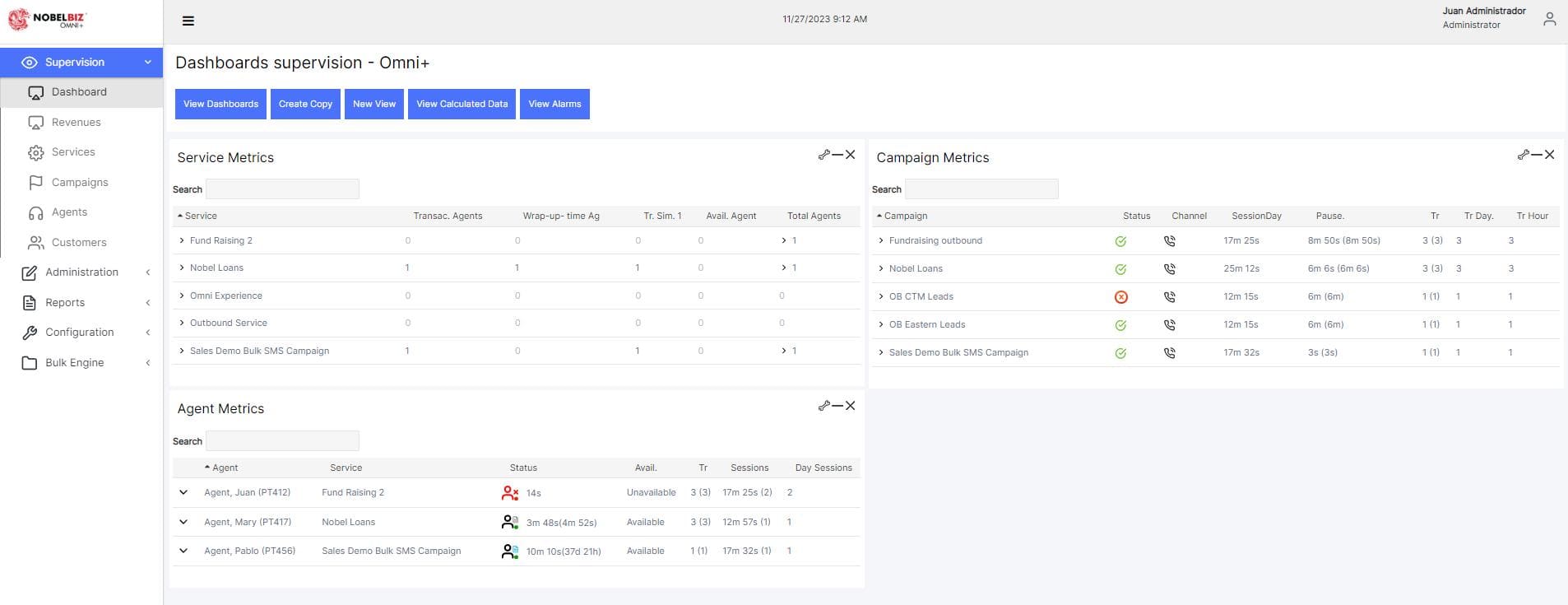
Managing Call Logs Effectively
Effective call log management involves investing in a reliable call logging software, organizing data systematically, establishing clear documentation protocols, conducting regular audits for accuracy, integrating with CRM systems, providing staff training, implementing security measures, leveraging reporting tools for analysis, ensuring scalability, and encouraging user feedback. By combining these elements, businesses can maintain precise records, derive actionable insights, and enhance operational efficiency in their call center operations.
Role-Based Access: Implementing different levels of access for agents, supervisors, and admins ensures that the right individuals have access to the appropriate call log information. This helps maintain data security and privacy while allowing relevant personnel to review and analyze call logs as needed.
Self-Assessment for Agents: Enabling agents to review their own performance through call logs can be a powerful tool for self-improvement and development. Agents can assess their call handling skills, identify areas for improvement, and take proactive measures to enhance their performance. This self-assessment process promotes accountability and empowers agents to take ownership of their professional growth.
Team Performance Analysis: Providing leaders with tools to monitor and guide their teams based on call log data is essential for optimizing overall call center performance. By analyzing team performance metrics, such as call duration, resolution rate, and customer satisfaction, supervisors can identify trends, patterns, and areas for improvement. This analysis enables leaders to provide targeted training, coaching, and guidance to enhance team performance and deliver exceptional customer service.
Conclusion
In conclusion, advanced call logging stands as a transformative force for businesses seeking to maximize efficiency and elevate communication management. This comprehensive guide has elucidated the significance of call logs, emphasizing their role in providing valuable insights, streamlining operations, and enhancing customer interactions. From tracking call date and time to capturing customer information, call logs serve as a goldmine of critical data, empowering businesses to make informed decisions.
The advantages of automatic logging over manual methods have been underscored, highlighting error reduction, standardization, and improved efficiency as key benefits. Exploring call logging software has shed light on the essential features that businesses should consider, such as enhanced categorization, search capabilities, integrated analytics, and CRM integrations. The benefits of implementing call logging software are manifold, offering enhanced performance monitoring, lead identification, and the ability to make data-driven decisions.
Finally, effective call log management strategies have been outlined, emphasizing the importance of role-based access, self-assessment for agents, and team performance analysis. By embracing advanced call logging techniques, businesses can truly revolutionize their operations and navigate the path to heightened efficiency and success.
NobelBiz delivers a robust call logging solution for contact centers through its OMNI+ cloud contact center software. With advanced features, seamless integration, and enhanced performance monitoring, NobelBiz ensures operational excellence and efficiency. Want to learn more? Get in touch with one of our experts here.

Michael McGuire is a contact center industry expert with almost two decades of experience in the space. His experience includes roles as Director of Contact Center Digital Transformation at NobelBiz, and as Director of Operations at FLS Connect, managing multiple call centers. As President of Anomaly Squared and Targeted Metrics, Michael successfully transitioned companies into remote operations and significantly boosted revenues. With a strong background in customer service, leadership, strategic planning, and operations management, Michael excels in driving growth and innovation in the call center space.
Mike is also a proud Board Member for R.E.A.C.H Trade Group, promoting consumer protection and satisfaction and Co-host of the Off Skripted Podcast – a show about Life, Call Centers and everything in between.


